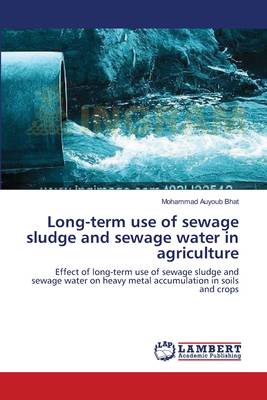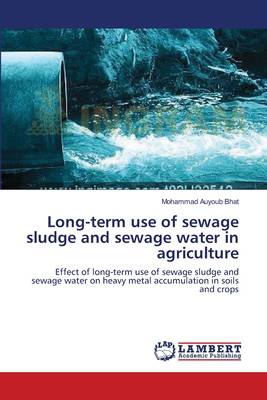
- Afhalen na 1 uur in een winkel met voorraad
- Gratis thuislevering in België vanaf € 30
- Ruim aanbod met 7 miljoen producten
- Afhalen na 1 uur in een winkel met voorraad
- Gratis thuislevering in België vanaf € 30
- Ruim aanbod met 7 miljoen producten
Long-term use of sewage sludge and sewage water in agriculture
Effect of long-term use of sewage sludge and sewage water on heavy metal accumulation in soils and crops
Mohammad Auyoub Bhat
Paperback | Engels
€ 84,45
+ 168 punten
Omschrijving
Application of sewage to the agricultural land as a source of irrigation water, plant nutrients and organic matter can lead to improved growth and yield of crop plants. Due to presence of toxic heavy metals within its composition, a cautious approach to its use in raising crops would be prudent. It is important to stress that total heavy metal content in sludge and sewage water treated soils does not necessarily reflect bioavailability or toxicity because speciation of metals could favour the presence of insoluble forms that are not absorbed by the plants, thus excluding toxicity risk to the biota. Every government in the world should formulate regulatory guidelines based on scientific evidences for maximum allowable soil metal concentrations to provide a safety factor in the land application of sewage.
Specificaties
Betrokkenen
- Auteur(s):
- Uitgeverij:
Inhoud
- Aantal bladzijden:
- 176
- Taal:
- Engels
Eigenschappen
- Productcode (EAN):
- 9783659136924
- Verschijningsdatum:
- 28/08/2012
- Uitvoering:
- Paperback
- Afmetingen:
- 152 mm x 229 mm
- Gewicht:
- 268 g

Alleen bij Standaard Boekhandel
+ 168 punten op je klantenkaart van Standaard Boekhandel
Beoordelingen
We publiceren alleen reviews die voldoen aan de voorwaarden voor reviews. Bekijk onze voorwaarden voor reviews.









